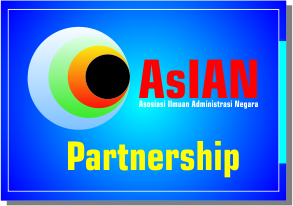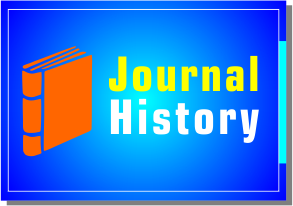Implementasi Peraturan Daerah Kabupaten Bungo Nomor 6 Tahun 2015 tentang Pengelolaan Sampah di Kelurahan Tanjung Gedang Kecamatan Pasar Muara Bungo
DOI:
https://doi.org/10.31334/transparansi.v3i1.877Keywords:
Implementation, Regional Regulation, Waste, Waste Management, Tanjung Gedang VillageAbstract
Estimated solid waste generated in Bungo District in a day is about 143 tons, and the leading sector in waste management in Bungo Regency is the Office of the Environment, identifying problems in implementing Bungo District Regulation No. 6/2015 on Waste Management in Tanjung Gedang Village, among others: Lack Temporary Shelter, low participation and awareness of the community in maintaining cleanliness, lack of socialization from the government to the community towards the Regional Regulation. The purpose of this study is to examine in depth related to the implementation and inhibiting factors in the implementation of the Regional Regulation in Tanjung Gedang Village. The method used in this research is descriptive method with a qualitative approach. The informants in this study numbered twelve people who were determined by purposive sampling and accidental sampling techniques. The results of this study note that the implementation of Waste Management in Tanjung Gedang Urban Village has not been implemented in accordance with the established regulations, it can be seen from the implementation of rights, obligations, prohibitions, waste management, and sanctions that have not been implemented in accordance with the rules has been established. The inhibiting factors in the implementation of the Regional Regulation are: there is no location and geographically Tanjung Gedang Village is near the riverbanks, making it difficult to create a Temporary Shelter, and there is no waste handling activity. Lack of adequate waste management facilities causes low participation and public awareness in maintaining environmental cleanliness. The limited budget causes a lack of socialization of the Regional Regulation to the public, and there is no firm action from the Government on the enforcement of the norms that have been regulated therein.References
Buku
Abdurrahman, Maman dan Sambas Ali Muhidin. 2011. Panduan Praktis Memahami Penelitian, Bandung : Pustaka Setia.
Agustino, Leo. 2016. Dasar-dasar Kebijakan Publik. Bandung : Alfabeta.
Apriadji, Wied Harry. 2005. Memproses Sampah. Jakarta : Penebar Swadaya.
BPS Kabupaten Bungo, Kabupaten Bungo Dalam Angka 2018, Muara Bungo : BPS Kabupaten bungo
Narbuko, Cholid dan Abu Achmadi. 2016. Metode Penelitian. Jakarta : Bumi Aksara.
Purnawati, Endang. 2007. Sampah Jadi Uang. Klaten : Saka Mitra Kompentensi.
Raco, J.R. 2010. Metode Penelitian Kualitatif Jenis, karakteristik, dan Keunggulan. Jakarta : Gramedia Widiasarana Indonesia.
Satori, Djam’an dan Aan Komariah. 2013. Metode Penelitian Kualitatif. Bandung : Alfabeta.
Sugiyono. 2017. Metodologi Penelitian Administrasi dilengkapi Metode R&D, Bandung : Alfabeta.
Suryati, Teti. 2009. Bijak & Cerdas Mengelola Sampah Membuat Kompos dari Sampah Rumah Tangga. Jakarta : Agromedia Pustaka.
Tahir, Arifin. 2015. Kebijakan Publik & Tranparansi Penyelenggaraan Pemerintah Daerah. Bandung : Alfabeta.
Winarno, Budi. 2014. Kebijakan Publik Teori, Proses dan Studi Kasus. Yogyakata : Caps.
Jurnal
Anggraini, Zepa dan Joko Susanto. 2019. Manajemen Persampahan di Kecamatan Rimbo Tengah Kabupaten Bungo, Tranparansi Jurnal Ilmiah Ilmu Administrasi Vol. 2 No. 2.
Ramdhiani, Tri Nanda. 2013. Implementasi Peraturan Daerah Nomor 02 Tahun 2011 Tentang Pengelolaan Sampah di Kelurahan Karang Anyar Kecamatan Sungai Kunjang Kota Samarinda, Ejournal Administrasi Negara, Vol. 1 No. 2.
Peraturan Perundang-Undangan
Undang-Undang Nomor 18 Tahun 2008 Tentang Pengelolaan Sampah.
Undang-Undang Nomor 12 Tahun 2011 Tentang Pembentukan Peraturan Perundang-undangan.
Peraturan Daerah Kabupaten Bungo Nomor 6 Tahun 2015 Tentang Pengelolaan Sampah.
Downloads
Published
Issue
Section
License

This work is licensed under a Creative Commons Attribution-ShareAlike 4.0 International License
Please find the rights and licenses in Transparansi : Jurnal Ilmiah Ilmu Administrasi By submitting the article/manuscript of the article, the author(s) agree with this policy. No specific document sign-off is required.
- License
The commercial use of the article will be governed by the Creative Commons Attribution license as currently displayed on Creative Commons Attribution-ShareAlike 4.0 International License.
2. Author(s)' Warranties
The author warrants that the article is original, written by stated author(s), has not been published before, contains no unlawful statements, does not infringe the rights of others, is subject to copyright that is vested exclusively in the author and free of any third party rights, and that any necessary written permissions to quote from other sources have been obtained by the author(s).
3. User Rights
Transparansi : Jurnal Ilmiah Ilmu Administrasi spirit is to disseminate articles published are as free as possible. Under the Creative Commons license, Transparansi : Jurnal Ilmiah Ilmu Administrasi permits users to copy, distribute, display, and perform the work for non-commercial purposes only. Users will also need to attribute authors and Transparansi : Jurnal Ilmiah Ilmu Administrasi on distributing works in the journal and other media of publications.
4. Co-Authorship
If the article was jointly prepared by more than one author, any authors submitting the manuscript warrants that he/she has been authorized by all co-authors to be agreed on this copyright and license notice (agreement) on their behalf, and agrees to inform his/her co-authors of the terms of this policy. Transparansi : Jurnal Ilmiah Ilmu Administrasi will not be held liable for anything that may arise due to the author(s) internal dispute. Transparansi : Jurnal Ilmiah Ilmu Administrasi will only communicate with the corresponding author.
5. Miscellaneous
Transparansi : Jurnal Ilmiah Ilmu Administrasi will publish the article (or have it published) in the journal if the article’s editorial process is successfully completed. Transparansi : Jurnal Ilmiah Ilmu Administrasi editors may modify the article to a style of punctuation, spelling, capitalization, referencing and usage that deems appropriate. The author acknowledges that the article may be published so that it will be publicly accessible and such access will be free of charge for the readers as mentioned in point 3.
Every accepted manuscript should be accompanied by "Copyright Transfer Agreement"prior to the article publication.











